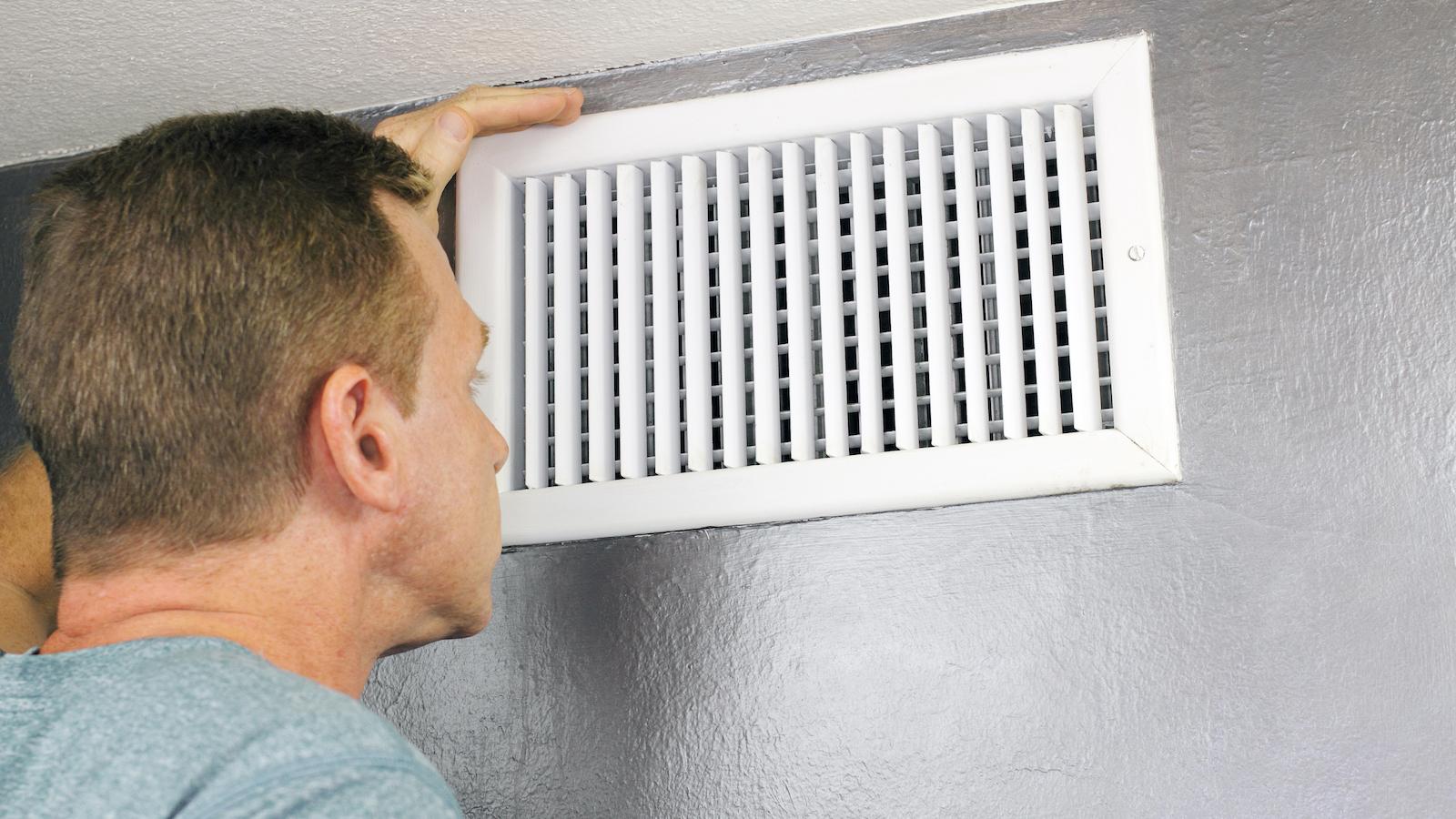How to Handle the Top 5 Household Emergencies
It pays to be prepared for these common problems at home.
A home emergency can arise suddenly, but being prepared and knowing how to handle them can prevent additional inconveniences, damages, and costs. Whether you find yourself locked out of the house or replacing HVAC units on the hottest day of the year, learn how to quickly and efficiently remedy these common situations.
Homeownership comes with many unexpected twists and turns that can be inconvenient and expensive. Even when following strict home maintenance checklists, sudden and unexpected repairs or other home emergencies are practically a rite of passage for homeowners. Despite this, there are ways that you can prepare in advance for a seemingly small home emergency to ensure that it doesn’t turn into a much larger, costly one.
Explore 5 of the most common scenarios and learn the best way to handle them:
Home Emergency #1: Locked Out of the House
Being locked out of the house is a frustrating experience, but it is a typical home emergency.
For instance, you rush out the door in the morning and lock the door from the inside as you leave. Moments later, you go to retrieve your car keys and realize they are now locked inside, along with your house key.
Assuming there are no open windows or alternative entry methods, your first reaction may be to pry the door open or pick the lock. This is never a good idea as you are likely to damage the lock or the door, which can lead to costly repairs. It also increases the level of frustration experienced and makes the situation worse.
Instead of trying to get inside by damaging the locks, doors, or windows, try these tips instead:
Is there a spare key?
Most homeowners have spare keys made for other household members, to grant access to friends or family while out of town, or solely to have a spare. In this event, your best bet is to call someone with a key. It may be inconvenient (especially if it's late at night), but it is often the fastest way to resolve this home emergency without causing damage. If you cannot access a spare key, take a deep breath and leave it to a professional.
Hire a professional locksmith.
Locksmiths are well-versed in the world of home lockouts. Many offer home emergency services and can assist homeowners who are locked out of their homes, regardless of the time. Because they have industry-specific experience and tools of the trade, they can allow re-entry quickly without causing damage to locks or doors. Although you will incur the costs of the locksmith’s service, this will spare you the frustration of trying to gain access on your own, along with repair or replacement costs for your lock or door.
Prepare for future lockouts.
While no one intends to lock themselves out of their homes more than once, it’s better to err on the safe side. In the future, consider keeping a spare key nearby with a trusted friend or family member. Many homeowners invest in hide-a-key boxes, while others install a digital lock that requires a code or a fingerprint to gain access to the home instead of a traditional key. If you opt for this route, ensure that checking the lock’s batteries becomes a regular part of your home maintenance checklist.
Home Emergency #2: Power Outage
Power outages are common due to electrical system overloads, storms, winter weather, accidents, road work, and many other issues. Regardless of how thorough your home maintenance checklist is, this home emergency is often beyond the owner’s control. Despite this, how you handle a power outage is essential to your safety and your wallet.
If not widespread, call a professional electrician.
First and foremost, never attempt to repair an electrical issue within your home on your own. This is dangerous and can result in further damage to the system. If the issue concerns your home’s electrical system, instead of a widespread power outage, immediately contact a qualified electrician for assistance. Regardless of the cause of the blackout, two crucial aspects include the food in your refrigerator and the electronics in your home.
Keep your fridge shut.
While it can be tempting to check the food's status inside your refrigerator for an hour or two without power, keep your fridge shut. Leaving the door closed seals in the cold air and minimizes the chance of your food spoiling for a short period. Remember that after four hours without power, the Centers for Disease Control (CDC) recommends disposing of all food in the refrigerator to avoid the risk of illness. A cooler filled with ice can extend the life of refrigerated foods beyond this point. As for foods in the freezer, guidelines state that a full freezer will remain frozen for 48 hours while a half-full freezer has around 24 hours.
Keep electronics unplugged.
Random power surges can damage or destroy anything still connected to an outlet. Avoid costly replacements by disconnecting sensitive electronics. Likewise, add surge protectors to your home maintenance checklist to protect your devices for future instances.
Home Emergency #3: Frozen Pipes
Frozen pipes are a severe home emergency that many face each winter. When pipes freeze, they are at risk of bursting, which is costly to repair and can result in thousands of dollars in additional flood damage.
Turn off the faucet.
If the water in your faucet has slowed to a trickle or even a full stop after a bout of freezing weather, you may have a frozen pipe ready to burst. Avoid using your home's faucet or other water to prevent further damage.
Call a plumbing professional.
If your pipes are frozen or have burst, your best bet is to call a plumbing professional. They will have access to the tools needed to remedy the situation without risking further damage.
Winterize your pipes.
With this particular home emergency, prevention is vital. Add winterizing your home to your regular maintenance checklist each year before temperatures start to dip. This includes disconnecting garden hoses, draining pools, and adding insulation to pipes in attics, basements, or garages prone to freezing.
Home Emergency #4: Overflowing Toilet
When your toilet is backed up and overflowing, you’ll need a combination of quick thinking and immediate action to prevent water damage and expensive repairs. While your first thought may be to reach for towels to soak up the water on the floor—put this on the back burner. Instead, concentrate on stopping the flow of water from the toilet first. To do this, remove the lid off the back of the toilet. Press down on the flapper valve and lift the float to cut off the water supply. Hold the float upwards until the water level drops to normal.
Next, take matters into your own hands. If you have a plunger nearby, it’s time to take action. Ensure enough water is in the bowl to cover the plunger and keep plunging until the suspected blockage is gone. In many cases, an overflowing toilet home emergency results from a temporary blockage of toilet paper buildup, and plunging will resolve it.
If the problem persists or plunging doesn’t help, you may be facing a more severe sewage problem, blocked vents, clogged pipes, or a full septic tank. Call an emergency plumber for assistance and follow any steps they recommend over the phone until they arrive on-site.
Home Emergency #5: Broken Air Conditioning or Heating
In the heat of summer or cold of winter, it’s important that your heating and cooling system is up and running. Have a plan to stay comfortable in extreme weather and keep your HVAC unit in tip-top shape. Proper maintenance is key to avoiding mishaps that leave you without air conditioning or cooling in your home.
Add regular HVAC maintenance to your home maintenance checklist.
Make sure to replace your air filters and perform regular maintenance as your owner’s manual recommends. Also, note any strange noises, smells, or sudden spikes in utility costs. These can indicate a severe problem with your system that may warrant repairing or replacing HVAC systems. It’s best to reach out to an HVAC pro at the first signs of trouble to have a thorough inspection. This will also allow you to spot minor issues before they become major, costly ones.
Get out of the house, if possible.
If your HVAC system fails during extreme winter weather or heat, leave the house if possible. Extreme heat or cold can be dangerous, especially for those with existing health conditions. If the temperatures become bothersome before repairing or replacing HVAC systems can occur, visit a neighbor, a friend, or a relative with a more comfortable space.
Hire an HVAC professional for repairing and replacing HVAC systems.
Even with proper maintenance, the unexpected often occurs at the worst possible times. From an air conditioning unit suddenly failing during a heat wave to a furnace stopping during a blizzard, you can’t always predict when this home emergency will occur. However, repairing or replacing HVAC systems is a job for an HVAC expert. Your local Trane Comfort Specialist will happily get your HVAC equipment up and running again. They can also schedule seasonal maintenance services to ensure you’re ready for whatever weather comes your way.




